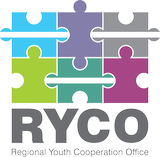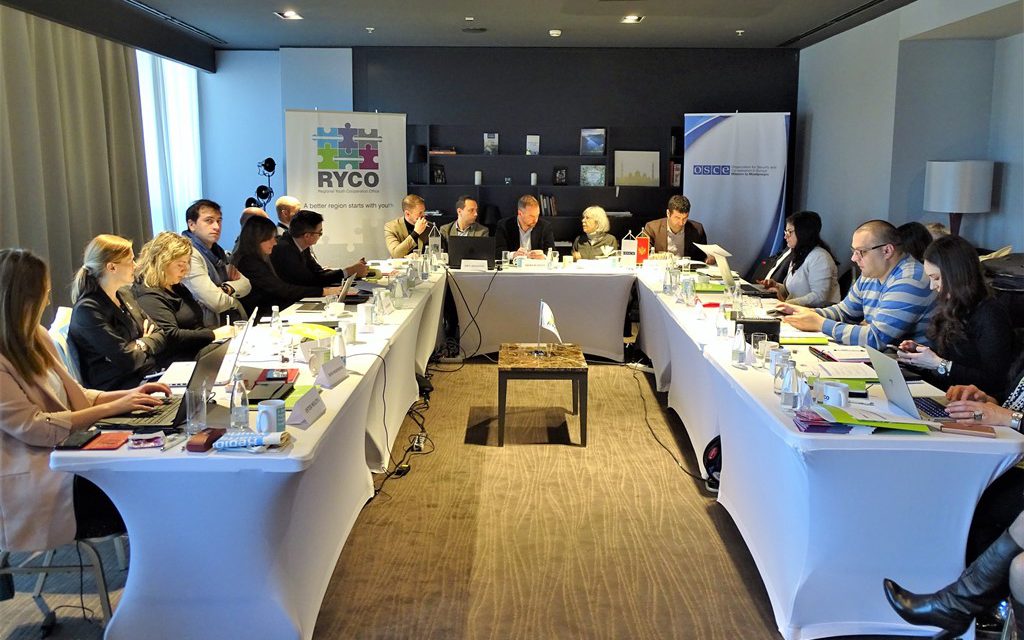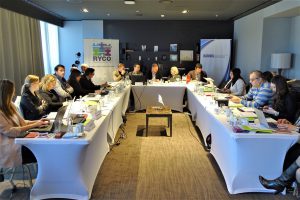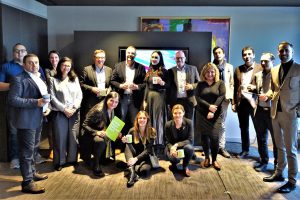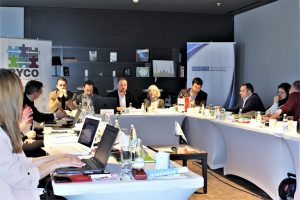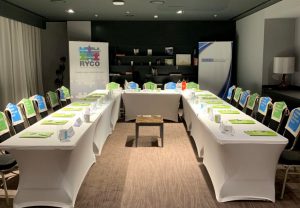PODGORICA – The fourth RYCO Advisory Board meeting supported by the OSCE Mission to Montenegro took place on Thursday in Podgorica, Montenegro. The meeting discussed the RYCO’s development since the previous Advisory Board meeting but also deliberated the current state of play and RYCO’s future activities and plans.
Head of the RYCO Local Branch Office in Montenegro Mr Edin Koljenović welcomed the Advisory Board members in Podgorica while RYCO Secretary General Mr Đuro Blanuša and Head of the OSCE Mission to Montenegro Ms Maryse Daviet gave the welcoming remarks.
Mr Blanuša underlined the achieved results of the Secretariat during 2019 highlighting that RYCO received 378 applications from around 1,200 applicants from the region for its two open calls for project proposals.
“We awarded 64 projects with more than 1.3 million euros, while 25 information sessions and 350 meetings were held on a local level. I am proud to share with you than four regional projects were launched, and between 4,000 and 5,000 young people will participate in youth exchanges 2020,” RYCO Secretary General pointed out.
Underlining the solid partnership between the OSCE Mission to Montenegro and RYCO, Ms Daviet noted that RYCO has achieved significant results in the region. She also emphasized that work on strengthening the capacities of young people to deal with youth cooperation, reconciliation and intercultural dialogue is of key importance.
“However, it is equally important to focus on the internal organizational strengthening and consolidation of RYCO after the initiative’s program expansion that occurred last year. As planned by RYCO’s strategic plan, continuous consolidation will guarantee RYCO’s success and sustainable future,” Ms Daviet concluded.
After fruitful conversations and exchange of experiences and practices, the Advisory Board members formulated recommendations for the RYCO Governing Board, RYCO Secretariat and the next set-up of the Advisory Board.
The topics such as increased participation of young people, type of nominations and establishment of working groups within the Advisory Board have been mentioned as well to improve the Advisory Board’s role within the RYCO structure.
Simplifying the applications and reporting procedures for RYCO grantees to make them more youth-friendly, as well as focusing on youth with fewer opportunities were the points marked as important.
Mr Blanuša closed the meeting concluding that it was very productive, hoping that the upcoming Advisory Board meetings will be equally successful.


